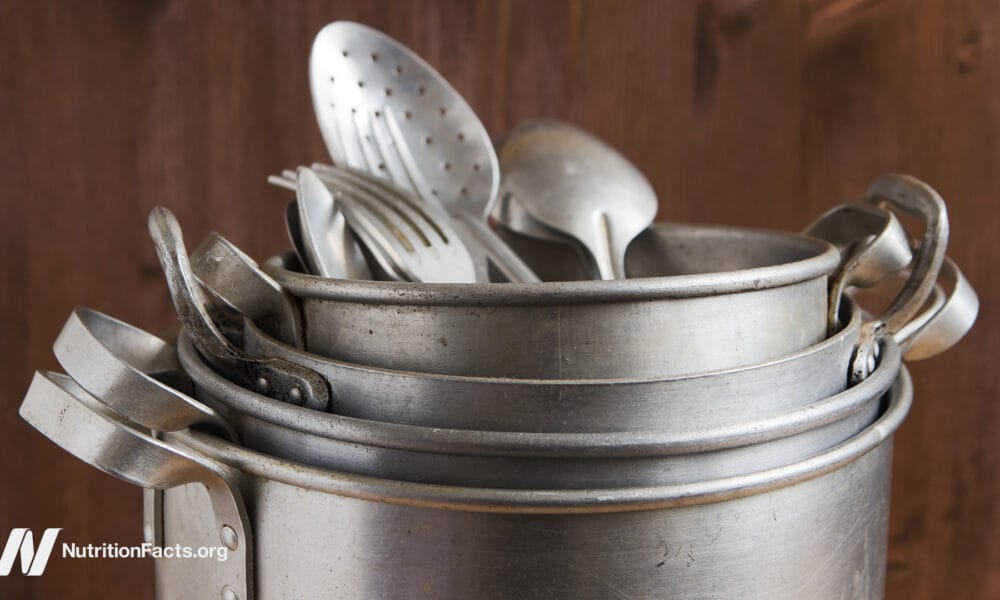According to NutritionFacts.org recent research has raised important questions about the safety of everyday aluminum cookware, revealing potential health risks that deserve careful consideration. While aluminum toxicity has been debated for decades, new studies provide compelling evidence about its impact on human health.
Research Findings on DNA Damage
Studies comparing blood samples from regular aluminum cookware users versus non-users revealed disturbing results. Users showed double the aluminum blood levels of non-users, accompanied by increased free radical damage to body fats and proteins. Most concerning was the significant DNA damage observed, linked to compromised antioxidant capacity in their bloodstream.
Aluminum Exposure in Cooking
While processed foods containing aluminum additives represent the primary source of exposure, cooking utensils contribute approximately 20% of daily aluminum intake. This becomes particularly problematic with acidic foods like yogurt and tomato sauce, which enhance aluminum leaching. Even short-term use of aluminum camping dishes can exceed recommended intake limits, especially for children.
Safety Concerns with Aluminum Bottles
Children consuming just two cups of tea or juice daily from aluminum bottles risk exceeding tolerable exposure limits. The German Federal Institute for Risk Assessment advises against using aluminum containers for acidic or salted foods, promoting “unnecessary ingestion” prevention.
Understanding Aluminum Foil Risks
While food wrapped and baked in aluminum foil does show metal leaching, the quantities are generally minimal – primarily concerning for young children or individuals with kidney problems. However, a significant risk emerges when foil-wrapped food contacts stainless steel surfaces, creating a battery effect that dramatically increases aluminum concentration in food.
The Impact of Cookware Usage
Regular use of aluminum cookware shows measurable health impacts, particularly when used with acidic foods. The research demonstrates that daily exposure can lead to:
Increased oxidative stress
Compromised antioxidant defenses
Elevated DNA damage risk
Higher blood aluminum levels
Practical Recommendations
Limit regular use of aluminum cookware, especially for acidic foods
Choose alternative materials for children’s drinking containers
When using aluminum foil for storage, avoid contact with steel surfaces
Consider using non-aluminum alternatives for daily cooking needs

